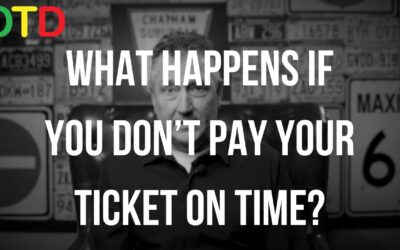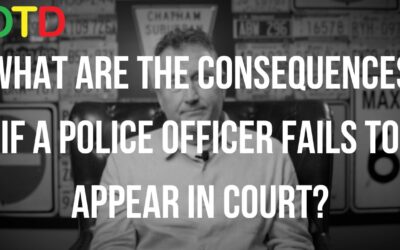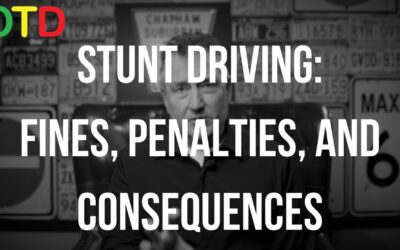Pleading Down A Careless Driving Ticket: A Guideline
Pleading down a careless driving ticket, a guideline. There are many considerations that one should have to make when dealing with a matter such as this. One of the considerations is, and probably the most important is: is there actual evidence before the court, or potentially before the court, that could lend itself to a conviction?
That’s why you need a professional, because that is a loaded question. Many people I’ve found, just because they’re charged with an offense, feel guilty. And because they feel guilty, they believe they should be found guilty, or they feel that they are at the whim of whatever a prosecutor may say, whatever their opinion may be about that evidence.
What you ought to do, or what you would want to do, is make sure that that evidence is in fact substantial enough, that a court would be able to make a conviction. What I found, historically, over my many years of experience, is that that’s not quite true. The charge of careless driving itself is one that I argue is overused.
Most of the newer police officers coming on board, most of the new recruits work from this position. There’s been an accident, oh here’s the guy that was involved. Here is the careless driving ticket, and end of story. There is no deep consideration whatsoever of really what happened here. The problem with that approach is, in some of these cases, people take that ticket and they simply pay the ticket, and now they’re convicted.
In order to determine whether that evidence is legitimate or strong, or would support a conviction, you need to do a thorough review. That review is done against the backdrop of the current case law, the current cases of this type of offence, and we have to take those current cases and we have to view them through your particular set of circumstances, your particular case.
It’s very subjective. There are no two careless driving cases that are going to be the same. And it’s important to know that difference and how that distinguished difference is going to reflect upon the case law and then make a calculated gamble, I guess, as to whether or not they can get a conviction.
There are cases where everything is sort of aligned for a prosecutor. They have strong evidence. Their witnesses are there. Everything is there and it looks very, very dismal from a defendant’s perspective and it’s very likely that there would be a conviction. Those are difficult cases, no question, but even in those difficult cases, when you retain somebody who knows what they’re doing, they’re going to get you into a better position.
Sounds self-serving to say, but I have had cases where the cards have been stacked against the defendant. My client is in a terrible position going into those prosecutions. And during that prosecution, or during that trial, things go wrong. A couple of directed questions and cross examination will topple the whole apple cart.
The whole case against the client will collapse. I’m not talking about whether that client is guilty or innocent. I’m talking about whether the evidence is there or not. If something like that happens, that happens with somebody who knows what they’re doing and we can be successful. That is not a promise or guarantee that by being involved there is going to automatically be a win, there’s going to automatically be this, this position where we’ve just won the whole thing. Not at all. What does happen, though, is when we are involved, we are usually going to improve the worst possible situations. And when possible, and when appropriate, we’re going to get that client out of that situation entirely.
The name of the game when it comes to careless is to try to get that matter reduced, exhausting every possible avenue to do that. That may be in sort of the preamble to the trial, which means there’s going to be multiple court attendances, multiple consultations with the prosecution, arguing and advocating what happened here and how to get this reduced or even thrown out for a client.
There are literally hundreds of circumstances in our firm where that can happen. And that is not saying that everyone that comes into our doors is going to be successful. I can simply say the majority are, and even if you’re not successful in having the charge thrown out completely, we’re in a position where we’ve put you in a better place, where you can continue to purchase insurance and you can continue to drive.




